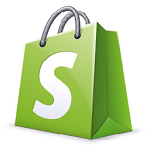Seatbelts on and chairs in the upright position, retail business owners. Here’s how to prepare your organization for lift off.
1: Email Marketing
It’s no secret that once you generate a customer base, you’re going to want to a) keep in touch with your shoppers and b) multiply them to keep your business growing. That’s where automated email campaigns come in. An effective email software can help you create email templates and facilitate ongoing communication to capture your customers’ attention and keep them constantly interacting with you and your product. An even better email software gives you the tools to reach out to new customers, seamlessly integrate them into your email recipients list and generate interest in your business on a broader scale. Email Software Safe Bet:
MailChimp®

A 2017 Editor’s Choice of PCMag.com and a fixture of podcast sponsorship (you may have heard their ads on Serial), MailChimp is both a popular and impactful email platform designed to make your life a lot easier. Functioning as a “second brain” according to their website, MailChimp is meant to do all of the heavy market lifting while you divert your time and energies to the bigger picture. Features include an exhaustive lineup of templates, comprehensive analytics, social media advertising channels and advanced segmentation (available with purchase of a MailChimp Pro account).
2: Ecommerce
If brick-and-mortar storefronts aren’t an option, or if you’re hoping to watch your business expand to national or even international levels, an ecommerce platform will be an essential component of your success. In 2016, Entrepreneur reported that 64 percent of U.S. small businesses offer some sort of website or online information regardless of their overall business model (and independent of social media)—a clear attempt to accommodate the over 80 percent of Americans who hit the web before deciding on a purchase. In October of 2017, The Economist likewise declared that ecommerce, which currently accounts for 10 percent of America’s consumer market, is poised to “get much bigger” in the years to come. As a retail business owner, your choice should be obvious: You need to create an ecommerce store that puts your product on dazzling visual display and drives revenue by making your items and/or services accessible to anyone with a computer or mobile phone. Ecommerce Software Safe Bet:
Shopify

A giant in the field of ecommerce with a wealth of interactive features,
Shopify
represents a gold standard in online sales solutions. Their customizable digital storefronts put you in command of your website design, product inventory (you can showcase an unlimited amount of items and effortlessly track them all) and customer transactions. The preferred platform of over 500,000 businesses worldwide, Shopify also offers an exceptional app store—1,000+ apps as of 2016—with features that can assist you in managing your customer base, optimizing your images for SEO, proffering discounts to your most loyal consumers…and pretty much everything in between.
3: Shipping
Unless you plan to operate in a highly specified digital market where nothing passes between hands, odds are your day-to-day business functions will involve getting a lot of items from point A to point B. Yup—if you’re dealing in any kind of volume, you’re going to have to invest in a shipping and fulfillment solution. In addition, once your digital storefront is online, you’ll need a helping hand to link your incoming orders to outgoing products and to connect your selling channels to your mail carrying services. Shipping software bridges those gaps for you. A recent study sponsored by Pitney Bowes for Forbes Insights suggests modern-day shipping challenges can only be surmounted with a “strategy that includes automation [and] a mix of carriers…as well a the added benefits of working with a trusted shipping partner.” The implication being: You only stand a chance if you enlist in the aid of a shipping platform. Shipping Software Safe Bet:
ShipStation®

Shortlisted for SoftwareSuggest™’s “Top Shipping Software for the USA in 2017,” ShipStation masterfully integrates with a vast array of ecommerce and mail carrier platforms (as in, you can be using more than one online store and more than one mail carrier at any given time), acting as ambassador for your products and delivering them safely to your customers’ doors. Added special features include uniquely adaptable email confirmations, detailed tracking info for your buyers and customized label printing.
4: Accounting
You may be able to set your company apart based on the strength of your interpersonal skills, but, at the end of the day, your business rises and falls on the strength of the almighty dollar. In other words, you need to get your financial house in order if you want your company to thrive. (It’s an obvious concept, but it bears mentioning.) Worried your bookkeeping prowess is lacking or that balancing all of your business interactions will eat up too much of your schedule? Don’t be. Accounting software is here to rescue you. A well-designed web accounting service can cover every aspect of your business finances, from overseeing inventory reports to calculating payroll transactions to managing a chart of accounts. And the best part? Most accounting software solutions employ an “intuitive” (hence the name), vernacular-based interface that’s easily navigated even by the most mathematically challenged of retail business owners.
Accounting Software Safe Bet: Intuit
QuickBooks®

The
QuickBooks
platform, with its sleek online dashboard and its emphasis on saving you time and money, is a healthy financial choice for any business in the market for accounting software. PCMag.com hailed it as an “excellent” Editor’s Choice in accounting applications for small business in 2017, citing its “depth, flexibility [and] extensibility” as industry standouts. Video tutorials and live webinars are available to help you get set up, and, once you’re comfortable, you’ll be able to sync your QuickBooks account to your bank, keep constant watch over your sales and deductions, create invoices and handle payments with minimal effort.
Again, these platforms are only a small survey of the solutions you’ll need if you’re building a viable retail business in the digital age. And yet, though the list is by no means complete, it’s a good start. By streamlining practices and organizing your inventory and communications down to a more workable scale, the software mentioned above can take your business to higher places and get you well on your way to the economic stratosphere.
Have a safe and pleasant flight.